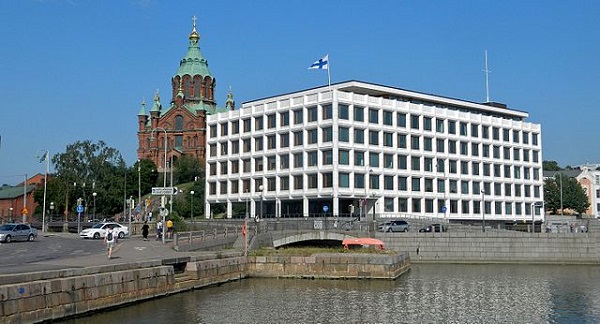
Nordic paper and wood products giant, Stora Enso, announced on 20 April that it plans to close two paper mills – the Vesiluoto mill in Kemi, Lapland, and the Kvarnsveden mill in Börlange, central Sweden. Both towns’ economies rely on the plants, which are both a century old.
Stora Enso is one of the biggest and oldest companies in the Nordic countries and one of the twenty-five whose shares make up the Helsinki OMX stock index. It is claiming that decreased paper sales during the COVID pandemic are to blame for the two plants becoming unprofitable. But the company, as a whole, reported hundreds of millions of euro in profits for 2020, and with the company’s expansion into China and Pakistan, it seems likely the true motivation is to establish cheaper labour working under fewer legal protections.
The wood products industry in northern Finland has been the site of a long war between workers and Stora Enso. In 2008, the company shut down a wood pulp plant in Kemijärvi, 200km northeast of Kemi, claiming it wanted to reduce reliance on Russian imports. Despite a 28,000 signature petition and mass demonstration, Matti Vanhanen’s government refused to intervene in the closure. In 2019, meanwhile, Stora Enso colluded with competitors, Metsä Group and UPM, to lock out workers during sector pay negotiations. The forest workers’ union responded to this with a multi-week strike and, in October, Finnish employers announced they were abandoning national collective bargaining entirely in favour of local agreements.
Nationalise!
If the mills close the impact on the northern Finnish port of Kemi could be devastating. The mill is the second-biggest employer in the town and unemployment was already 11% before the coronavirus pandemic. Börlange, while larger, suffers from similar social ills. To an outside observer, it seems obvious that the Finnish and Swedish governments would step in to stop the closure by nationalising the plants.
The Finnish government is already the biggest shareholder in Stora Enso. More than a third of investors’ voting rights are in the hands of the Finnish state-owned company, Solidiu or the social insurance organisation, Kela. A further small sliver of the enterprise is under the control of Unionen, the Swedish general union, which represents forestry and paper workers. The Finnish state surely has enough influence to save the jobs through nationalisation, the way it did with the Talvivaara mine after private owners caused an environmental disaster in 2015.
But while SDP Prime Minister, Sanna Marin, might publicly call the plant closure “heartbreaking”, her shaky government has embraced a policy of encouraging decline for state-owned companies in order to make room for more privatisation and marketisation. The most visible labour activity in Finland over the past year and a half has been from public workers in the postal and rail services, fighting attacks on jobs and working conditions – attacks that the government bears direct responsibility for.
Tradition of struggle
The belligerent “neutrality” of the Left Alliance, a part of Marin’s government, deserves particular scrutiny. Kemi is the Left Alliance’s primary stronghold in Finland’s industrial North, and has stood as a bastion of Finnish labour for decades, being the site of the last major violent confrontation between bosses and workers in 1949. But even in a long expose in the Left Alliance newspaper, Kansan Uutiset, that details the likely impact of Stora Enso’s closure on the town, the party organ offers no message of solidarity to the workers, no reflection on the government’s policies, no plan to fight the closure, and not even a petition like the one they circulated against Kemijärvi’s closure.
Workers around the world have taken up the call for nationalisation or renationalisation of major sectors of the economy, as a way of fighting capitalist carve-ups of key services like transportation and health care or the asset-stripping of major industries. But experience across Europe shows how state ownership is not enough.
The CWI calls for the nationalisation of the commanding heights of the economy under the democratic control of its workers. Stora Enso and other such companies should be fully owned by the Finnish and Swedish states. At the same time, those states must support a system where elected, recallable representatives of the workers make the decisions about how these companies are run, not agents of the wealthy and big business.
If an industry absolutely must contract and lose jobs, as is the case with Finland’s heavily polluting peat farming industry, full pay must be maintained for those made redundant until alternative work is available with decent wages. Finland’s north is full of unused opportunities for sustainable forestry, electricity generation and agriculture. These could be done without incurring the environmental damage of the planned Pyhajöki nuclear power plant or the destructive impact on Sámi traditional life of the proposed Kirkenes rail connection.
Workers in Finland and Sweden need to draw a clear line, with or without the support of elected politicians and bureaucratic union bosses: no job cuts, share out available work without loss of pay. Organize democratically-decided strikes and build solidarity action across the Nordic countries. Bring Stora Enso fully under public ownership, run not for profit but under the control and management of elected workers’ representatives.
Full support to a united struggle of workers in Finland and Sweden against the bosses’ system, and for socialism!
